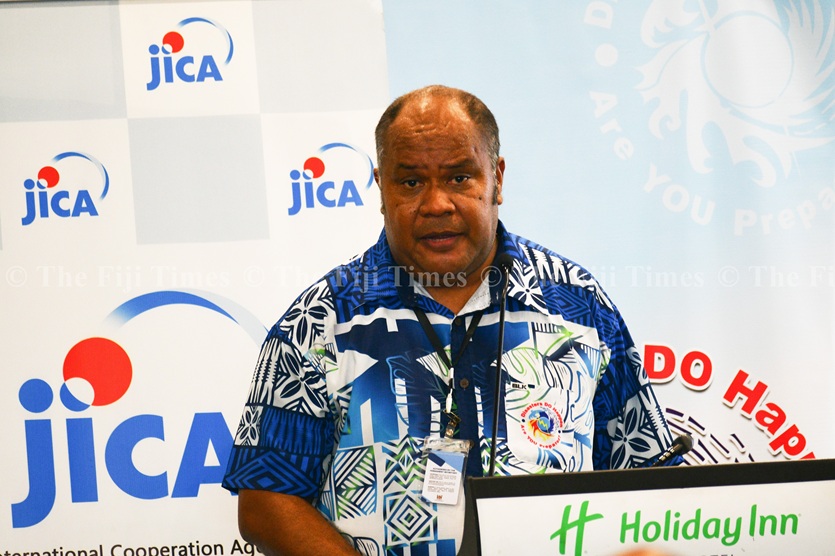As we prepare for the start of our cyclone season next month, it is timely and reassuring that questions are now being raised about our level of preparedness.
At a recent disaster management forum, Commissioner Central Josefo Navuku spoke about emerging risks, noting that “landslides are another emerging issue”.
The Fiji Meteorological Office, he said, has indicated that our weather patterns are becoming more irregular, with stronger systems and heavier rainfall. This means we should expect more landslides in the years ahead.
While technical advice and guidance are provided, Mr Navuku pointed out that the cost of rehabilitation often falls on the affected residents.
“The responsibility of funding those interventions rests with the residential owners. Government does not have funding to deal with rehabilitation of residential areas,” he said.
Let’s face it! Natural disasters are not something new to Fiji. They have not just come out of the woodworks. Cyclones, floods, landslides, and storm surges have long been a part of our lives. We live in a region where nature’s power is both awe-inspiring and unforgiving. But this also means we have learned to adapt, rebuild, and rise again.
As the warnings go out this early in the season, we are reminded once again to take heed of alerts, warnings, and advisories issued by the Fiji Meteorological Service and the National Disaster Management Office (NDMO). These agencies work tirelessly to monitor developing weather systems, track their movements, and issue timely updates to help protect lives and property. But all this work is meaningless if we, as individuals and communities, fail to act.
We only need to think back to Severe Tropical Cyclone Winston in 2016 to understand the destructive potential of nature’s fury. When Winston swept across Fiji as a Category 5 superstorm, it unleashed winds of up to 315km/h and caused unimaginable devastation. It flattened homes, uprooted trees, tore apart villages, and left behind a trail of destruction and grief.
Koro Island, one of the worst-hit areas, saw hundreds of homes destroyed, even concrete structures were reduced to rubble.
Yet amid the horror, stories of courage and compassion also emerged, tales of neighbours helping neighbours, communities sharing what little they had, and Fijians showing extraordinary strength. These stories remind us who we are as a people. We are resilient. We are caring. We are survivors.
That same spirit must guide us as we move into another cyclone season. Preparedness begins now. So, let’s check on our evacuation plans. Let’s trim trees, secure homes, know where the nearest shelters are, and stock up on emergency supplies. During a cyclone, safety must come first: stay indoors, listen to official updates, avoid unnecessary travel, and look out for the vulnerable. And after the storm passes, we must stay alert to hidden dangers such as flooding, contaminated water, damaged power lines, and unstable slopes.
Every stage of a disaster, before, during, and after, calls for awareness, cooperation, and a sense of shared responsibility. Government agencies can lead the charge, but real preparedness begins in our homes and communities.
As a nation, we have weathered countless storms, and each one has taught us valuable lessons. Let us carry those lessons forward. Let us stay alert, stay prepared, and stay united. Because while we cannot control the weather, we can control how we respond to it.



